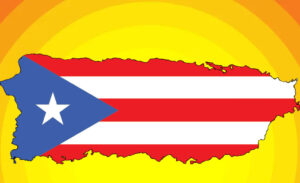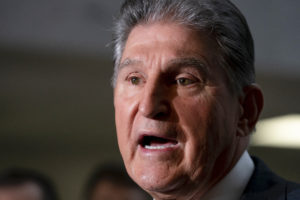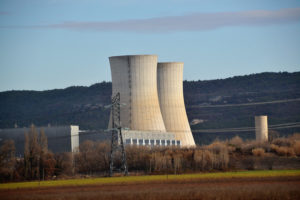Russia Calls NATO’s Bluff
NATO has now been broken because it was used by the United States and the European NATO members as a tool for expanding Western power into the Russian "near abroad," and after that, to make an inexplicably rash and dangerous effort to break into and split off portions of the Russian empire as it existed in the 19th century -- long before the Soviet Union existed.When a tool is used for the wrong purpose, it may break. NATO has now been broken because it was used by the United States and the European NATO members as a tool for expanding Western power into the Russian “near abroad,” and after that, to make an inexplicably rash and dangerous effort to break into and split off portions of the Russian empire as it existed in the 19th century — long before the Soviet Union existed.
This is dangerous, because Russia had to be expected to react, and violently so, to an intrusion into the territorial integrity of the historical Russia. Furthermore, with its assurances of eventual membership, NATO gave implied guarantees to Ukraine and Georgia that it did not intend to honor, or could not honor except at the risk of a war it had no intention of fighting. The outcome of the Georgian affair provides the proof. NATO has been conducting this policy toward Russia on the assumption that Russia is too intimidated by Western military power to resist. Now it has done so, in Georgia. The bluff has been called. The sham of the NATO guarantee has collapsed. Nobody in the West seems willing to admit it.
The Polish and Baltic state governments, the American neoconservatives and acolytes of a “New American Century” of expanding global domination, Vice President Dick Cheney and his friends in the armaments, energy and government services industries, all act as if they do not understand what has happened.
All of these people, and all those in Western Europe who are now demanding immediate admission of Georgia and Ukraine into full NATO membership, are unwittingly doubling the stakes, enlarging their commitment to go to war if Mikheil Saakashvili should make another assault on South Ossetia or Abkhazia in order to re-annex them to Georgia and if Russia again “overreacted.”
Of course, they don’t mean it, or even understand what they are doing. Or most of them don’t; there may be some in Washington today who believe a short and sharp little pre-emptive nuclear attack to disarm Russia might be just the thing, before Russia becomes any stronger. But I don’t think there are many people in NATO Europe, or in the United States, prepared to give a nuclear guarantee to Georgian irredentism, or to an attempt to split Ukraine, or intensify its internal divisions.
NATO was founded on Canadian initiative in 1949 as a security alliance of the North American nations with the European military union formed the year before by France, the U.K. and the Benelux countries, to defend against a “resurgent Germany.”
The new organization’s purpose was to keep the Germans down but also to keep the Russians out. The Cold War had broken out in earnest in 1948, with the Communist coup d’etat in Czechoslovakia. Other European countries joined NATO, and in 1955 a rearmed and rehabilitated Germany became a member of the alliance, which needed its troops.
The organization ultimately saw the Berlin Wall come down and the Soviet Union fatally shaken, and the Soviets’ agreeing to the unification of Germany, and of Europe.
This was in 1989, during the administration of the first President George Bush, who convinced his Soviet counterpart, Mikhail Gorbachev, that a free Eastern Europe and a united Germany would benefit the long-term interests of Russia. Gorbachev accepted Germany’s unification when he was assured that NATO would not be extended to the East. “Not one inch!” were the exact words of the reply made by Secretary of State James Baker.
That promise was then broken, first by the Clinton administration, then by George W. Bush. Today, the American-led military alliance has been built up to the entire western frontier of Russia, from the Gulf of Finland in the north to the Black Sea. The new members joined NATO for the perfectly good reason that they were afraid (this time) of a “resurgent Russia.” They believed that NATO would go to war to defend them, should Russia again become a threat to Europe. However, they did not join in order to take part in an aggressive policy meant to encircle and dismantle Russia. Yet that is what has happened, and Russia has called the bluff.
It is time for the European members of NATO to take a serious hand in this. The question must be asked and answered as to whether the NATO countries wish to continue to pursue an aggressively hostile policy toward Russia. If so, why? To what useful and attainable objective? What is to be gained by supporting Georgia’s revanchist demands to control the Ossetian and Abkhazian enclaves, the majority of whose people do not wish to be ruled by Georgia?
What are NATO’s intentions with respect to Ukraine? Does it intend to interfere in its internal affairs, to promote the domination of those Ukrainians who are pro-Western and Uniate (Roman) Catholic, over those others who are Russian-speaking and attached to Russia? If so, to what purpose? To force a national split in Ukraine? Or incite civil struggle? What do the NATO governments expect to gain from this? Where are the answers?
Visit William Pfaff’s Web site at www.williampfaff.com.
Your support matters…Independent journalism is under threat and overshadowed by heavily funded mainstream media.
You can help level the playing field. Become a member.
Your tax-deductible contribution keeps us digging beneath the headlines to give you thought-provoking, investigative reporting and analysis that unearths what's really happening- without compromise.
Give today to support our courageous, independent journalists.









You need to be a supporter to comment.
There are currently no responses to this article.
Be the first to respond.